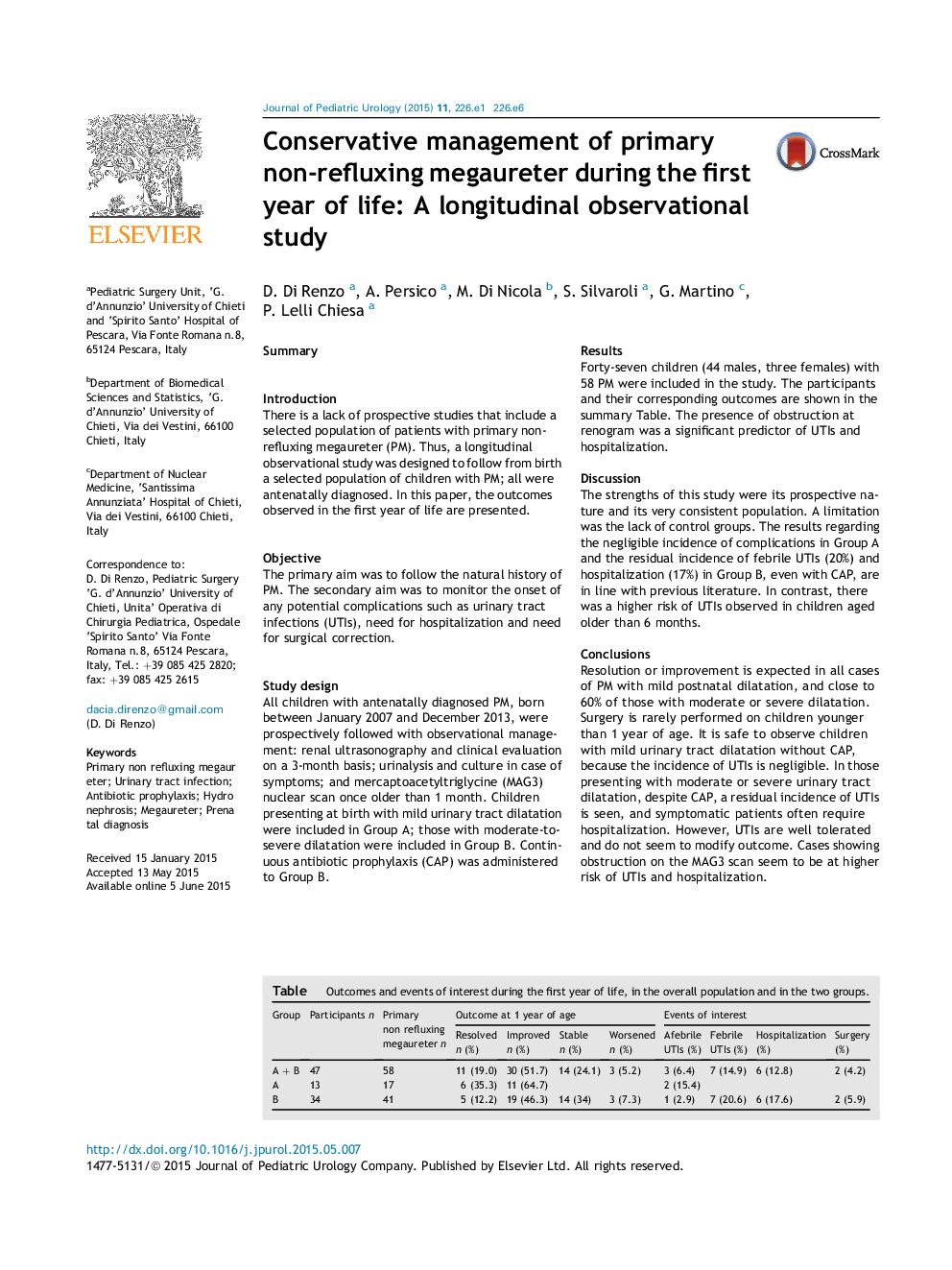| Article ID | Journal | Published Year | Pages | File Type |
|---|---|---|---|---|
| 4162199 | Journal of Pediatric Urology | 2015 | 6 Pages |
Abstract
Resolution or improvement is expected in all cases of PM with mild postnatal dilatation, and close to 60% of those with moderate or severe dilatation. Surgery is rarely performed on children younger than 1 year of age. It is safe to observe children with mild urinary tract dilatation without CAP, because the incidence of UTIs is negligible. In those presenting with moderate or severe urinary tract dilatation, despite CAP, a residual incidence of UTIs is seen, and symptomatic patients often require hospitalization. However, UTIs are well tolerated and do not seem to modify outcome. Cases showing obstruction on the MAG3 scan seem to be at higher risk of UTIs and hospitalization. Table. Outcomes and events of interest during the first year of life, in the overall population and in the two groups.GroupParticipants nPrimary non-refluxing megaureter nOutcome at 1 year of ageEvents of interestResolved n (%)Improved n (%)Stable n (%)Worsened n (%)Afebrile UTIs (%)Febrile UTIs (%)Hospitalization (%)Surgery (%)A + B475811 (19.0)30 (51.7)14 (24.1)3 (5.2)3 (6.4)7 (14.9)6 (12.8)2 (4.2)A13176 (35.3)11 (64.7)--2 (15.4)---B34415 (12.2)19 (46.3)14 (34)3 (7.3)1 (2.9)7 (20.6)6 (17.6)2 (5.9)
Related Topics
Health Sciences
Medicine and Dentistry
Perinatology, Pediatrics and Child Health
Authors
D. Di Renzo, A. Persico, M. Di Nicola, S. Silvaroli, G. Martino, P. Lelli Chiesa,
